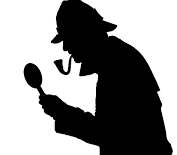It's My Book Birthday!
/My new cozy mystery series launches today with Level Best Books. Many thanks to Shawn, Verena, and Harriette!
There is nothing like finding a dead body, clad only in a red satin thong, on your property to jolt you from a quiet routine. Jules Keene, owner of the posh Fern Valley Camping Resort in the Blue Ridge Mountains, is thrust into the world of the Dark Web when one of her guests, Ira Perkins, is found murdered in the woods near her vintage trailers. Jules quickly discovers that the man who claimed to be on a writing retreat was not what he seemed, and someone will go to any length to find what he left at her resort. Jules, along with her Jack Russell Terrier sidekick Bijou, has to put the rest of the missing pieces of a blackmailing scheme together before her business is ruined.
Jules’s resort, set in the heart of Virginia’s Blue Ridge Mountains near Charlottesville in the quaint town of Fern Valley, offers guests a unique vacation in refurbished and upcycled vintage trailers. Hoping to expand her offerings, she partners with her maintenance/security guy to create a village of tiny houses, the latest home DIY craze, but a second murder of a reporter interrupts Jules’s expansion plans. Curiosity gets the best of her, and she steps up her sleuthing to find out what Ira Perkins was really up to and what he was really hiding at her resort.
Book Links:
Apple Books: Vintage Trailers and Blackmailers on Apple Books
Amazon: https://www.amazon.com/dp/B09GGBFWT5
Amazon: https://www.amazon.com/Vintage-Trailers-Blackmailers-Heather-Weidner/dp/1685120369
Barnes and Noble: Vintage Trailers and Blackmailers by Heather Weidner, Paperback | Barnes & Noble® (barnesandnoble.com)
Booktopia: Vintage Trailers and Blackmailers eBook by Heather Weidner | 9781685120375 | Booktopia
Kobo: https://www.kobo.com/us/en/ebook/vintage-trailers-and-blackmailers
Thalia: Vintage Trailers and Blackmailers von Heather Weidner - eBook | Thalia
















